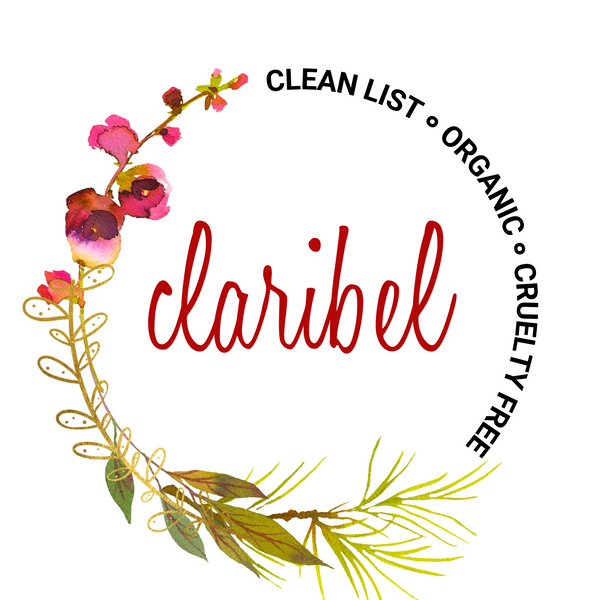
Coconut Oil Is a Staple for Skin Care & Beauty Care
It’s safe to say at this point, that coconut oil is proven to be a tried and true skin care benefit, as well as a dietary staple. It came onto the beauty market as a miracle worker for every skin care issue under the sun, slowly lost a small amount of it’s luster, and now is considered a reliable skin care helper for most issues.
There is one thing for sure, coconut oil will continue to be a go to ingredient for many of our basic beauty and dietary needs. It’s nutritional value is impressive and it’s ability to solve problems is respectable. Let’s dive right in.
The History of Coconut Oil
The use of coconut oil is pronounced in several regions of South America, Central America, the Indian subcontinent, Mele, Micro and Polynesia. The Sanskrit based Indian Ayurvedic medicine from 1500BC has documented the use of coconut oil in virtually every area concerning the body, mind and spirit.
Captain Cook, one of the early European explorers, mentioned how coconut oil became part and parcel of the communities thriving in the Pacific regions.
During World War II the young green coconut proved indispensable in that its water served as a saline drip and went on to save the lives of allied soldiers. Post-WW II, coconut oil was commercially marketed and sold in England and USA as ‘margarine’ and ‘coconut butter’ respectively. However, only in 1954, that coconut oil, though it has been used for long, became popular as more nutritious compared to other oils. This is because coconut oil, for several centuries, wasn’t received in good light owing to its saturated fat content. Thanks to the proponents of “saturated fat are no good for you” for simply classifying all three types of saturated fat under a single category they completely pooh–pooh the fact that some saturated fat, in fact, is quite essential for good health.
Studies, now and then, have proved that coconut oil stands out in terms of its structural makeup in medium-chain fatty acids something close to what is found in breast milk. And there is no better reason why coconut oil goes into baby formula, energy bars and sports drink, where it’s commonly known as MCT (medium chain triglycerides). MCT fatty acids exhibit great digestive properties than other fat types in different oils. This is due to the fact that the liver can process them directly and convert them immediately into energy, as they are easily digestible and enhance the process of absorption of other nutrients. Research and studies in the past failed to prove this because they experimented with hydrogenated coconut oil a process that converts all fats into harmful carcinogenic trans fatty acids.
6 Ways Coconut Oil Can Help Your Skin
Great eye makeup remover, including waterproof makeup. If you’re like me, you’re wearing waterproof mascara at least part of the time you wear cosmetics. For me, it’s a given that I’ll wear it during allergy season, during sad movies, and when I have to struggle through emotional holiday commercials. But seriously, while wearing waterproof mascara is a great option, it can be extremely hard to remove. Using coconut oil, the kind straight off the shelves of your grocery store, will do the trick. Warm a little in your hand and gently work it into your lashes with your eye tightly closed. Then wipe away and rinse. It’s easy and affordable.
Beneficial first step to makeup removal. Carrying on the dialogue about makeup removal, we want to emphasize how coconut oil is actually a great first step to makeup removal regardless of what kind of cosmetics you wear. Applying coconut oil to your skin before you cleanse, is a great way to dissolve excess oils, dirt, and effects of the environment. Then once you’ve worked it in, rinse and then cleanse.
An anti-inflammatory, which means it’s great for irritated skin. Studies show that coconut oil—which is extracted from the meat of mature coconuts—may improve skin barrier function and repair, has anti-inflammatory and antibacterial properties.
Great for anti aging. Since we know that coconut oil is an anti-inflammatory, we can leverage that benefit to help prevent the signs of aging. Environmental factors and inflammation are the key reasons why skin is stressed and ages. If we can tamp that down, we can help prevent the signs of aging.
An antimicrobial, which means it’s great for tamping down eczema and some breakouts. The medium-chain fatty acids in coconut oil have antimicrobial properties that can help protect against harmful microorganisms. This is especially important for skin health, as many types of skin infections, including acne, cellulitis, folliculitis and athlete's foot, are caused by bacteria or fungi. While coconut oil can occasionally be a comedogenic, it’s best to do a patch test on your skin if you suffer from acne. If you find it suitable, it could therefore actually help reduce your acne with it’s anti-inflammatory and antimicrobial qualities. Everyone is different, so give it a try.
Coconut oil is perfect for locking in moisture. Coconut oil is a commonly used as a hydrating oil in its raw form or as an ingredient in moisturizers. Simply use it as your go-to moisturizer if you’re looking for an affordable option that not only smells amazing, but also leaves your skin feeling nourished and smooth.
Great for healing eczema, a sunburn or rash. Coconut oil can also be used as a natural treatment option for those with eczema, a cluster of skin issues that lead to red, itchy, swollen patches of skin. One small study found that eczema patients (specifically those suffering from atopic dermatitis) who applied virgin coconut oil to the skin twice a day experienced a reduction in staph bacteria on the skin, dryness, abrasions, redness, and thickening of the skin due to scratching. Apply a light layer of virgin coconut oil to the affected area twice a day to help soothe eczema.
4 DIY Tips for Using Coconut Oil at Home
It’s an excellent deep conditioner for your hair. Hair conditioners often contain coconut oil because it easily penetrates the strands and can even prevent protein loss. I use coconut oil for hair and on my skin for deep conditioning. Apply a quarter-sized dollop to your hair, comb it, and then pile it into a loose bun. You’ll want to place a soft towel over your pillow or sleep in a shower cap. In the morning, rinse with a gentle shampoo.
A great shaving cream replacement. Conventional shaving cream is an expensive cocktail of chemicals that you don’t really need to get a nice clean shave on your legs or underarms. Coconut oil, on the other hand, is inexpensive, naturally antimicrobial, and smells divine. Plus, its skin-soothing properties will leave your legs looking hydrated (but never greasy).
Highly regarded body and skin moisturizer. Because coconut oil can be comedogenic, it’s a great choice for a body cream replacement. If you don’t have any concerns about body acne, then the body is fair game. It’s a great body moisturizer because it's rich in fatty acids and has both antibacterial and anti-inflammatory properties.
A great base to any body scrub. If your limbs are looking dull and feeling rough, you can certainly use coconut oil to whip up your own DIY body scrub to exfoliate with for brighter and softer skin. Coconut oil may actually help counteract the irritation from most exfoliators and create a great base to add sugar, salt or other exfoliants.
Our glycolic body cream contains coconut oil and is an essential part of it's unique formula to heal skin as well as exfoliate:
Conclusion
Coconut is an highly recommended ingredient to include in your skin care and hair care routine. It’s perfectly fine to keep a container of it handy in your bathroom for all of the purposes we’ve recommended.

